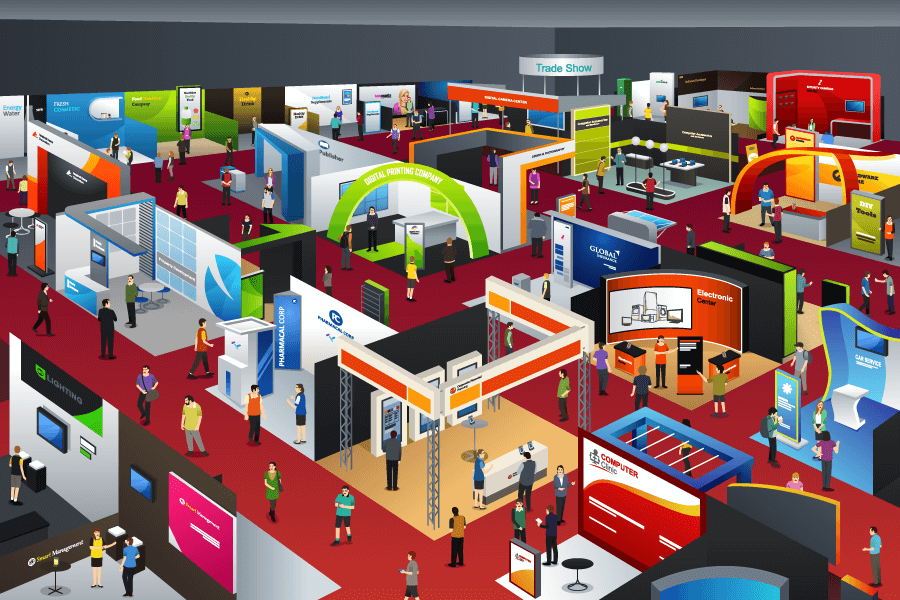- Details
- Hits: 1314
Las Vegas learned nearly 30 years ago when the Sands opened their expo center. They, and many other resort casinos, along with the LV convention center, proved with North America's largest trade show, Comdex ( 170,000 attendees and exhibitors to house); that other resort revenues can replace casino gaming as the primary profit generator of LV Strip resorts.
Casino gaming is not new to Georgia. As a child, I remember slot machines being offered at the Faryland Club, on Lookout Mountain, GA; where my Father was the Manager. And nearby was the Lookout Mountain Hotel with a full casino.
In the study, key takeaway no. 2 predicts most of the Atlanta casino revenue will come from locals. A quick look at Las Vegas, which has a total win of over $7 billion, over 80 percent comes from visitors, and the number of casino rooms available, dealing with the tourist/ convention market on the Strip and Downtown is only about 10 percent more than Atlanta has: according to the 2016 Nevada Abstracts. I would not expect Atlanta with one or two casino serving the Atlanta market to generate the kinds of casino revenue as the LV Strip and Downtown (over $6 billion); but I would not be surprised to see a single casino in downtown Atlanta generating over a billion dollars annually, primarily from visitors. A neighborhood casino, or racetrack with slots, would primarily serve the local population, avoiding downtown traffic and costly parking fees.
This study refers to the reduced win at the Harrah's New Orleans casino; but they failed to mention the competition from nearby Louisiana riverboat casinos and land based gaming in Mississippi; or the recent cigarette ban at the New Orleans casino. There is also no mention of the prohibitive minimum casino tax in New Orleans; that was originally proposed by me, 40 years ago, in a study prepared for the State of Louisiana. It was based on a monopoly casino in New Orleans, with US competition only coming from Nevada and the soon to open casinos in Atlantic City.
This study concentrates on displacement revenues, but fails to mention the payroll and spending by the thousands of new casino employees, that will be dining and shopping in those communities lucky enough to obtain a casino license.
With only 4 to 6 casinos, the GA Lottery will likely suffer no adverse impacts. When helping the MA Senate on their earlier efforts to pass casino and racino Legislation, I prepared a study on State Lotteries, where new gaming had been introduced. In major states like California and New Jersey, lotteries grew in revenue, along with the casinos. Only in Louisiana and Iowa, were lottery revenues negatively impacted; primarily a result of the amount of new competition approved. In Louisiana, 15 riverboat casinos were spread around the State, and several tribal casinos opened along with slots at racetracks; plus slots allowed at bars and truck stops, Statewide. Iowa also has multiple riverboat casinos, tribal casinos, casino games at racetracks and has the highest percentage of gaming positions, relative to the State population, in the US.
The study mentions the negatives of crime, compulsive gambling, bankruptcies, impacts on neighborhoods; all items to consider; but crime increases will depend on how many new visitors are attracted by the casinos. In studying the FBI Statistics on Violent and Property Crime; the resort communities in Florida, including Tampa, Miami and Orlando (the US' top family destination), all had higher Violent and Property Crime rates, than Las Vegas. But crime stats are misleading as they compare total crime to the permanent population of an area; totally disregarding the millions of visitors. In fact, even though Atlantic City's crime rates (based on the 40,000 residents) tripled, (primarily petty crime); a residents chance of being a victim declined by over 60 percent; as those at risk included 35 million visitors and another 60,000 employees that commuted from other South Jersey communities.
And when opponents discuss the increases in compulsive gambling, which is a true negative; they forget to mention that state Lotteries typically earn the highest per capita betting from their states lowest income neighborhoods.The communities mentioned as receiving most of their casino revenue from residents, have more casino locations, that proposed in Georgia, and far fewer hotel rooms, providing an estimated 30 to 40 million guest nights annually, spent by visitors to Atlanta.
Casino proponents, like MGM, need to hire an independent firm, to provide a more realistic view of gaming's probable impacts on Atlanta and other communities, likely to be given a chance to vote on the issue.
Other recent topics on Georgia casinos:
AJC poll: Voters back casinos in Georgia
What are the odds gambling comes to the Peach State? | News | mdjonline.com
This article indicates meaningful support for limited gaming in Georgia, as long as it provides meaningful tax revenue to the HOPE Scholarship Program. Representative Ed Sellers considers casino gaming a "gimmick" that other states have tried, without positive results. Senator Lindsay Tippings refers to Atlantic City's experiment as failed. But in response to the negatives; I helped with the 1976 successful casino referendum, assisted the Legislature in drafting the Casino Control Act, and helped open the first legal US casino, outside the State of Nevada. Our positive experiences for nearly 40 years, including a quarter century as a monopoly in Philadelphia, New York City and New Jersey, included over 60,000 new jobs, over $10 billion in new construction, over $10 billion to programs for NJ Seniors and the disabled; with the majority of the customer support coming from other states than New Jersey.
Naturally there were negatives, like an increase in crime, traffic congestion and compulsive gambling. But the crime increase was lower than the increase in visitors; and we have seen resorts in Florida, including Tampa, Miami and Orlando, the World's top family resort; all with higher FBI violent and property crime rates that America's top casino destination, Las Vegas.
And if Floridians are concerned about compulsive gambling, then take a good look at which communities have the highest per capita spend at the Georgia Lottery. If it's anything like the US's most successful lottery, Massachusetts, it will likely be in the lower income neighborhoods. Casino traffic is a concern, but is less of a problem than going and coming from a major sporting event or concert; and it primarily avoids daytime drive time patterns; preferring weekends and evenings.
Georgia casino backers ready to try again as lawmakers return
Senator Beach's proposal makes a lot of sense for Georgia. Because it could produce the needed funds from a voluntary tax; that would keep the HOPE Scholarship Program solvent in the near future.
Negatives surrounding casino gaming have been raised in other articles by Representative Sellers and Senator Tipping; referring to the impacts felt in Atlantic City.
AC has suffered from new direct competition in Eastern Pennsylvania and Greater NYC, and our old monopoly market, including New Jersey, now have casinos or race track slots closer to home. So even though 98 percent of our previous market has gaming closer to home or work; we have still kept nearly 50 percent of our casino win; primarily coming on weekends, holidays and the summer months of July and August.
Georgia, with its own support population and a proposed limit on the number and type of new gaming, would bring back much revenue from Georgia players now going to Florida, North Carolina, Biloxi or Las Vegas. In fact there are 96 flights a day from Hartsfield International just to Las Vegas, about 5 million available seats; although many are using Atlanta as a hub.
And the worry that casinos will harm the GA Lottery are likely misplaced. When I was helping the Massachusetts Senate with casino and racino legislation (2001-2004); I prepared a study on state lotteries, after introducing casinos, slot parlors or race tracks with slots; and found only two cases where lottery sales declined. And they were not in New Jersey, California or other large states, but in Louisiana and Iowa, with the highest number of per capita gaming positions in the US. Each have a dozen or more riverboat casinos, spread around their states, along with tribal casinos and in LA, slots in bars and truck stops.
Columbus area lawmakers set for start of 2017 Georgia General Assembly | Columbus Ledger-Enquirer
Senator Beach's current proposal would include Columbus, as one of the largest cities in the state, considering the metropolitan statistical area. Thereby giving the city an opportunity for a casino of its own, if local voters desire one. The benefits (jobs, construction, taxes for the HOPE Scholarships and new tourism) are real, so my finger is crossed for one of my previous GA homes.








